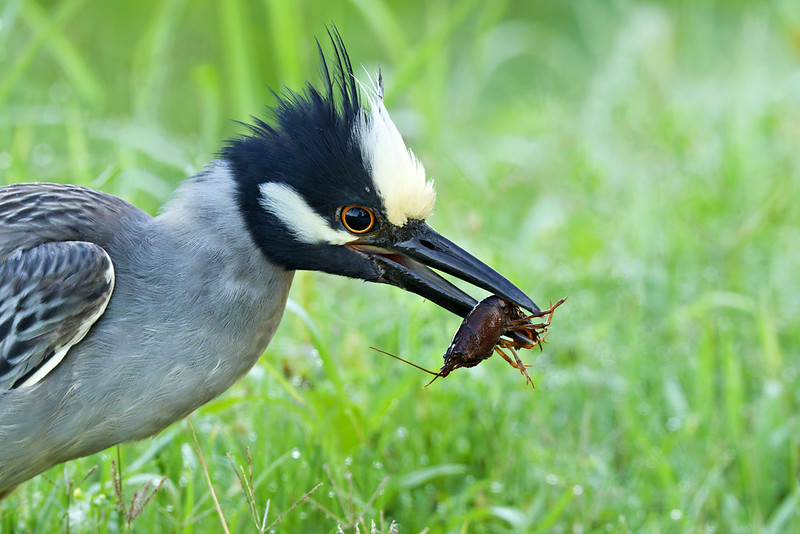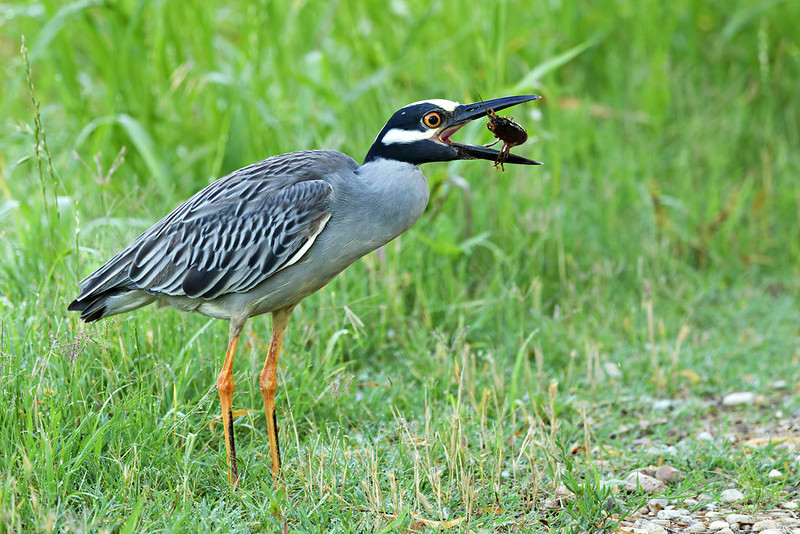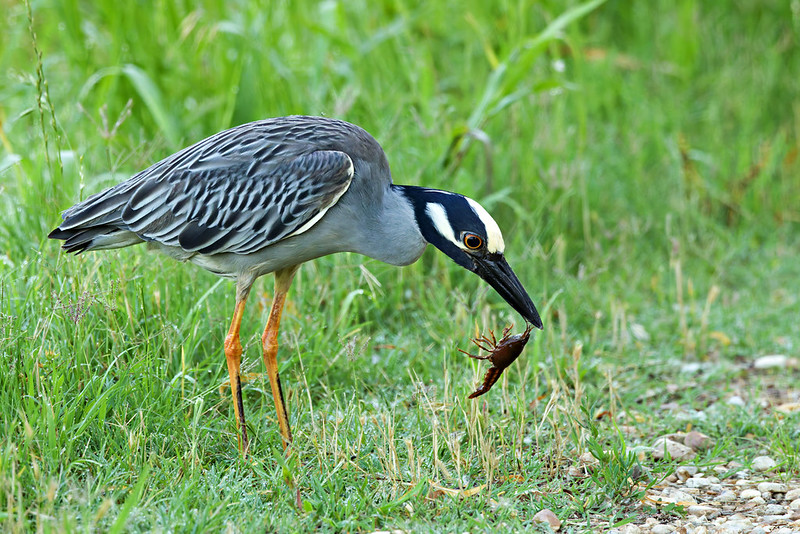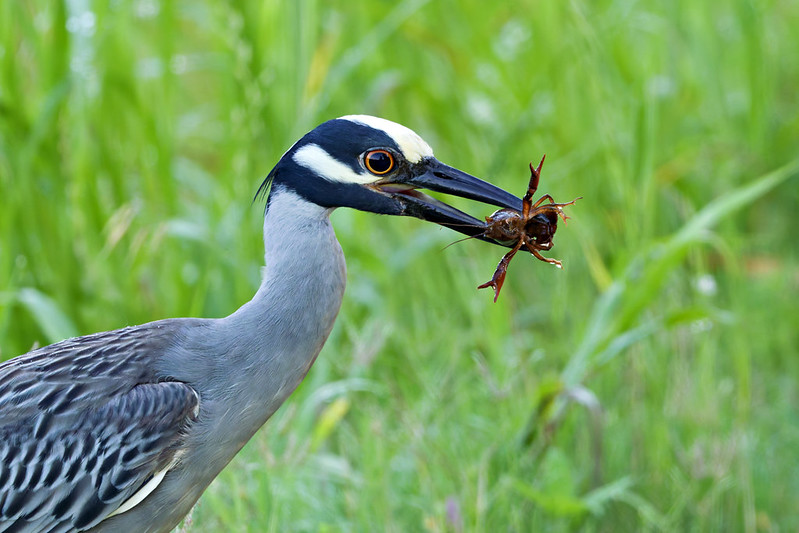During a drive through Sequoyah National Wildlife Refuge in Oklahoma, my friend Mia and I noticed a Yellow-Crowned Night-Heron near the road. As we approached a location called “Lower Scarborough Slough,” just north of Miners Cove on the auto tour route, Mia, who is a skilled photographer, spotted the bird walking along the roadside. You can view her photos from this encounter on her blog post, “Yellow-Crowned Night Heron And Crawdads”.

I parked as close as I could without disturbing the bird. Using my open truck door for support and cover, I stepped out and began photographing. The heron made its way down to a nearby slough, caught a crawfish, and returned to the edge of the road to feed. This behavior gave me a clear view and excellent conditions for capturing sharp, detailed shots.

To my surprise, the heron repeated this sequence. It walked back to the slough, caught another crawfish, and once again returned to nearly the same roadside spot to eat. After its second catch, it eventually flew from the area.

A Rare Return
Seeing a Yellow-Crowned Night-Heron active and close during daylight was a rare treat. I used to photograph these birds frequently before 2019, but a major flood that year significantly altered the refuge. Since then, sightings have been few and far between. Hopefully, this recent encounter signals their gradual return.
Field Tip for Bird Photography
When photographing birds from a vehicle, use the open window or door frame as a stabilizer. It helps steady your lens and allows you to remain partially concealed, reducing the chance of disturbing the subject.

Camera Settings
Camera: Canon EOS R5 Mark II
Lens: RF 100-500mm F4.5-7.1 L IS USM
Aperture: f/8
Focal Length: 500.0 mm
Shutter Speed: 1/640
ISO: 8000
Exposure Mode: Manual
Exposure Compensation: +1/3
I have to remind myself when shooting from the car, to turn off the engine. Even the most quiet car will introduce vibration and blur.
Excellent !